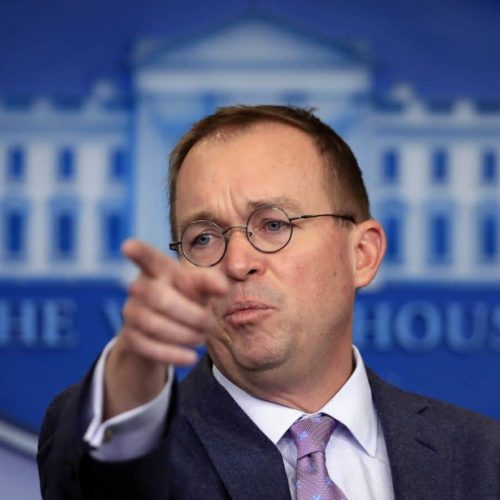Introduction
The congressional campaign of Republican Mick Mulvaney — former U.S. House member from South Carolina and director of the Office of Management and Budget who was appointed acting director of the Consumer Financial Protection Bureau — relied on hundreds of contributions from political action committees connected to lobbying interests over six years, according to a Center for Public Integrity analysis of federal disclosure data.
Mulvaney on Tuesday told a gathering of bankers that political contributions were key to securing meetings with him.
“If you’re a lobbyist who never gave us money, I didn’t talk to you,” Mulvaney said in comments to the American Bankers Association first reported by the New York Times. “If you’re a lobbyist who gave us money, I might talk to you.”
He continued: “If you came from back home and sat in my lobby, I talk to you without exception, regardless of the financial contributions.”
John Czwartacki, a Mulvaney spokesperson, said on Twitter the New York Times got it “wrong” but did not identify a specific factual inaccuracy. “Director Mulvaney’s speech today to the ABA made it clear that being from ‘back home’ is ‘without exception’ more important than money when visiting congressmen,” Czwartacki said.
The Center for Public Integrity found a little more than a thousandcontributions from lobbyist-connected PACs to Mulvaney’s committees on reports filed with the U.S. Senate, including 15 from the American Bankers Association’s BANKPAC:
Read more in Money and Democracy
Elections
Study: Most Americans want to kill ‘Citizens United’ with constitutional amendment
The odds of such a change happening? Next to nothing.
Money and Democracy
Why the Koch brothers find higher education worth their money
The power of the Koch brothers’ money in higher ed goes far and wide, and aims for impact


Join the conversation
Show Comments